

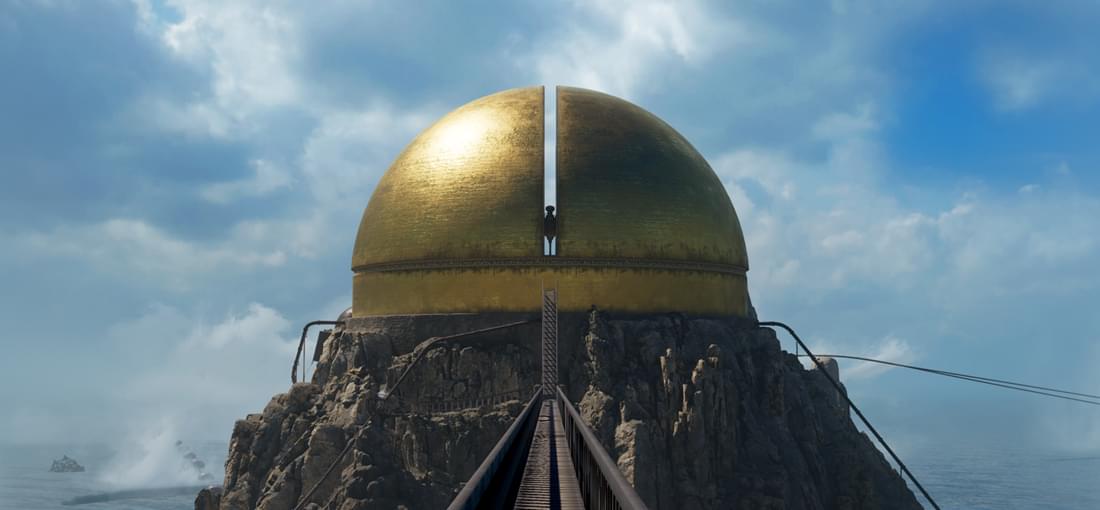
As far as creating the world goes, it's almost everything I wanted in a modern Riven remake. I am taking off a star only because I feel all of the cons could have easily been addressed during development if just one more brain cell had been activated. If you are a new player, I strongly recommend you play Myst first. If you have already played Myst, then you have an idea of what to expect. No further introduction will be necessary. Pros: - Fresh take for returning players: It looks like Riven, it sounds like Riven, it feels like Riven, it must be Riven. It is Riven. But you will quickly begin to notice changes here and there. Many of the puzzles have been modified (for the better) and new areas have been added while others removed entirely. In other words, you will be relearning how solve the game. - Controller support. Give/Take: - Knowledge of the original game will help you a lot, and you'll appreciate the little nods to the original game. However, that same knowledge can also get you into places earlier than you should. Cons: - Getting from point A to point B can be tedious and time consuming. Running is slow, walking is painfully slow. The village area has way too many ladders. There are a few other examples I could cite, but I don't want to accidentally drop any spoilers. Lets just say I feel like the original game was, ironically, more convenient in this regard. - Controller mapping is not optimal.
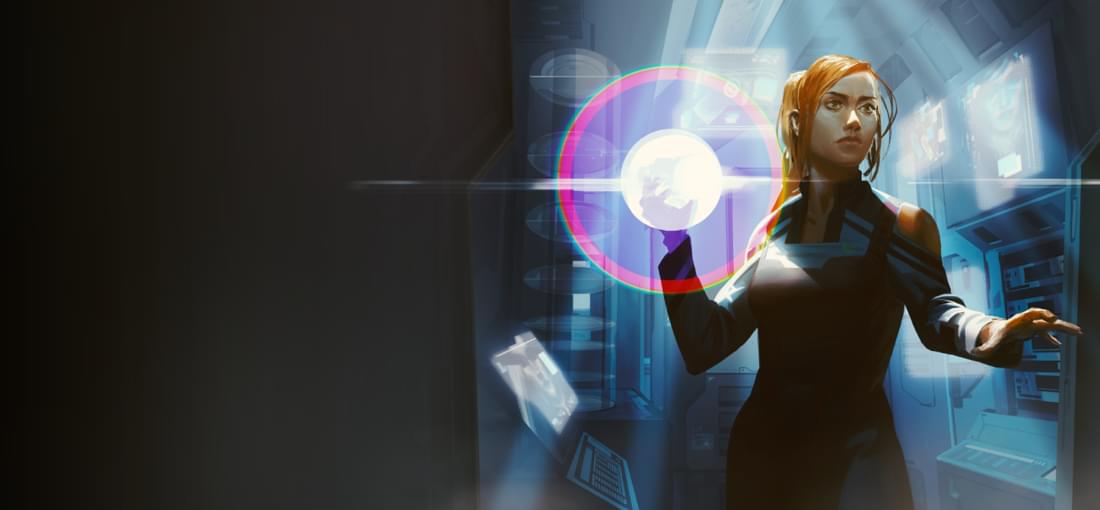
In Between Horizons, you play as a security officer and solve a handful of cases on a large space ship. The premise is excellent, the story would make for a great movie if you can ignore or justify the biggest plothole: the lack of security cameras. The game is also a little too short, IMO; there are only 10 cases to solve in total. But your ending may change depending on how well/poorly you do. You probably won't solve it perfectly on your first try, unless you're a dirty cheater. What mysteries are there are pretty good overall. They really make you think and some of them require you to do a little paper work, which I enjoy. But I really struggled in the latter half of the game. There was a notable drop in the amount of useful evidence and support to guide me, and I was forced to make guesses based on insufficient evidence. Some examples, without spoiling anything significant: - There is a case where you have to figure out some information regarding medical records. The records are in code, like "2L3C13." One might imagine the doctors would happily tell you exactly how to read this code, but they only give you a summarized explanation. You have to figure out the exact use of the code through another means entirely. - You are given one cold case to solve. You will only receive circumstantial evidence. In other words, you must make a guess based on what was present, who was present, and their motivations, but you will not be given any hard evidence of any kind. - You are tasked with finding the precise location of something using only soft ranges, and only 1/4th of the points you are given are relevant. The two biggest QoL improvements I can think of, and would like to see, are: - Option to sort evidence alphabetically and search by name, instead of all of it being fixed in the order they're discovered. - Markers on the map to indicate who is at what location, and what locations are inaccessible, so you're not running around like a headless chicken everywhere.
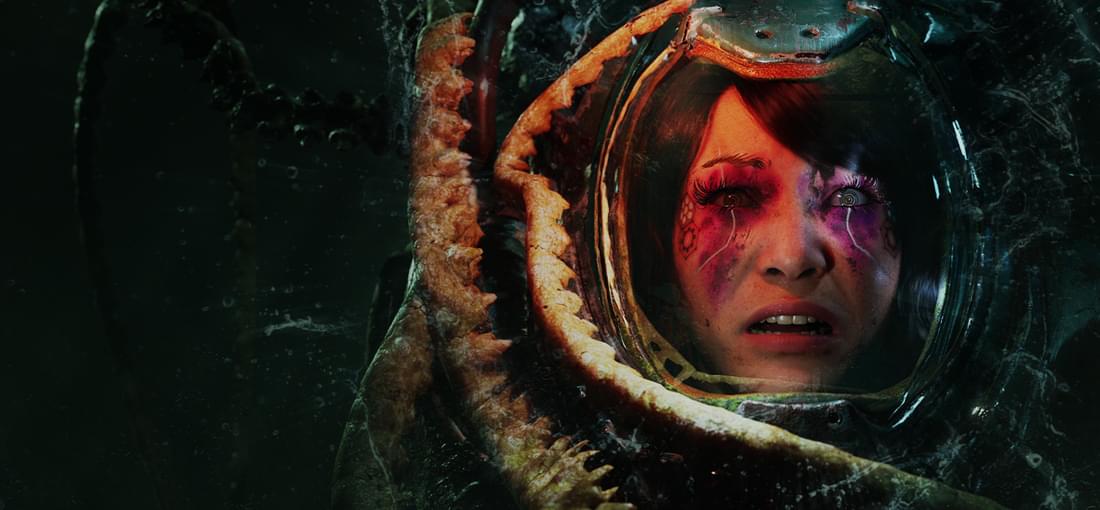
Really 3.5 stars, not 3. Stasis 2 surpasses Stasis 1 in just about every way, horror, sound, storytelling, characters, etc. But it's still not perfect. The biggest and most obvious improvement is you can now ping for interaction points rather than be left to a pixel hunt. The game now also provides a few helpful hints based on the character's thoughts. Unfortunately, the puzzles are almost just as obtuse as ever, and the new hint system isn't always sufficient. Between Act 1 and Act 2, the hints helped, and I only referred to a guide once. However, I initially felt it was on me for not experimenting with items, but in hindsight, I shouldn't have had to guess in the first place. What I was interacting with and trying to acquire was not at all made clear. The hint, "I should look elsewhere" in no way guided me towards looking at the object in the room and using a certain item on it. The problem of obtuse puzzles became glaringly problematic in Act 3, which I am currently stuck on. After running around for three hours with no progress, I've resorted to a guide for a full solution, and I'm quickly finding out I never would have noticed any of this - like a clue in the PDA system when that system had been used exclusively for flavor up to this point. Even with the guide, it's not always clear what I should be looking for. You might think "skill issue," but it's really not. I solved Riven's infamous fire marble puzzle without a guide. I solved Quern without a guide. So, trust me when I say, "this game wants you to use very specific items in specific ways, even when your way is perfectly logical." Why does it matter if I use a grenade or acid to destroy something, or a bag or pump tool to accumulate a leaking fluid? The end result would be the same either way. The game dictates otherwise, and it's a little frustrating.
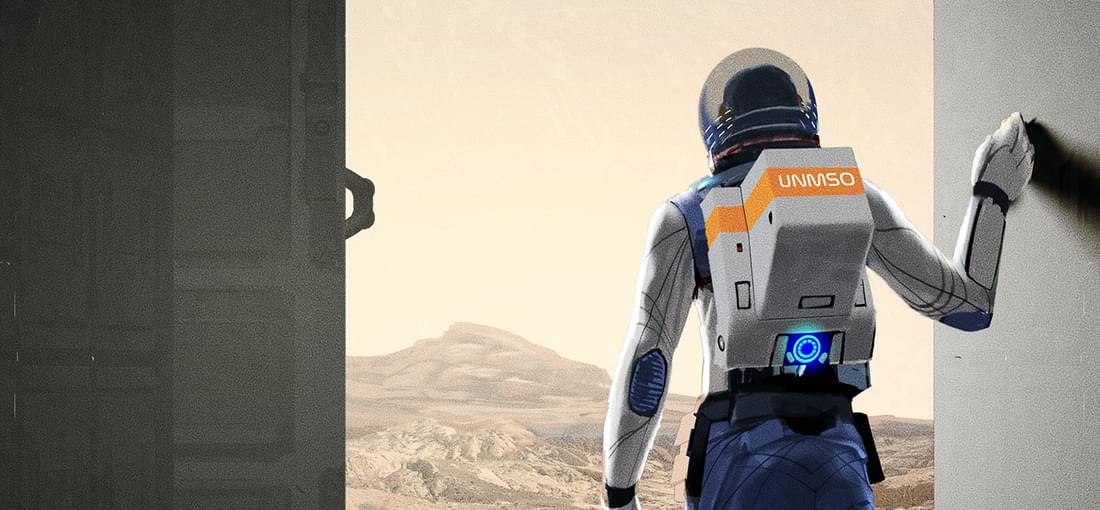
You're going to have to play this half-baked demo/tutorial twice to get it, and that means it's not a good tutorial. It tells you to "do this XYZ" but doesn't explain what XYZ are, why they matter, where you're supposed to find them, how you're supposed to use them, or anything about them. I think this is in part because the UI not intuitive and there are no warning indicators what your actions might do. You're left to fumble ignorantly and just deal with the outcome. Like, how was I supposed to know placing object A here would replace object B? The point of a tutorial is to INFORM the player, not frustrate them. A lot of the text and icons are also quite small, which has been a plague of modern gaming for a while. I don't know why developers do this. I cannot read your tiny AF 4pt font on my 1920:1080 monitor. Stop using it.
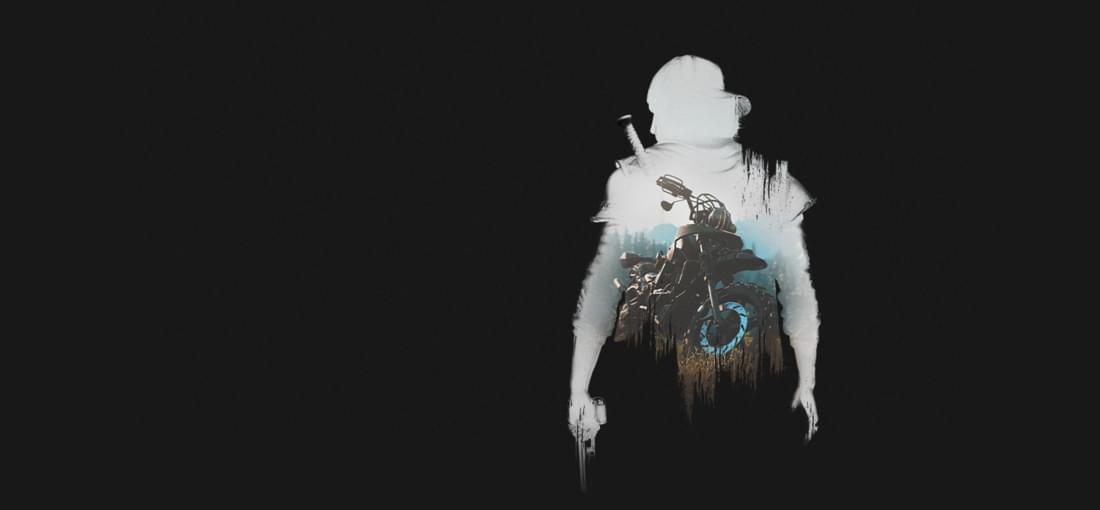
Why is my star rating 3? Shouldn't it be a 5 if I think it's worthy of a sequel? Read on. Days Gone is an unpolished gem. It's an open world zombie game comparable to State of Decay, but with a greater focus on the narrative surrounding Deacon St. John instead of a community of survivors building a home. Other than that shift, if you've played SoD, you've functionally played Days Gone. You explore the world doing jobs and gathering supplies, rinse and repeat. I also noticed the gameplay, action and control response is comparable to the Tomb Raider reboot games. The zombies themselves are mostly your typical mindless runner zombies. And you got your typical muscle zombies, screaming zombies. I'm glad they left out exploding gas zombies. The animal zombies are a nice touch, but the big standout is the hordes, which were done really well. In the early stages of the game, stealth is the way to go - but you will not be steatlh-fighting a horde. You actually do want to avoid them until later on when you get better weapons and lots of resources for molotovs and traps. The plot isn't stellar. You will see everything coming a mile away. But the character development is outstanding. Some characters you thought you hated you'll come to love. But once you've completed the story, there isn't really anything left to do. All that is to say, the game plays it pretty safe. Everything in Days Gone will feel familiar in some way because doesn't try do anything new. That's why 3 stars. But it does what it does well enough to make you want more. It was an enjoyable 60 hour experience, and I can only hope someday Sony will change their mind and revive this IP.
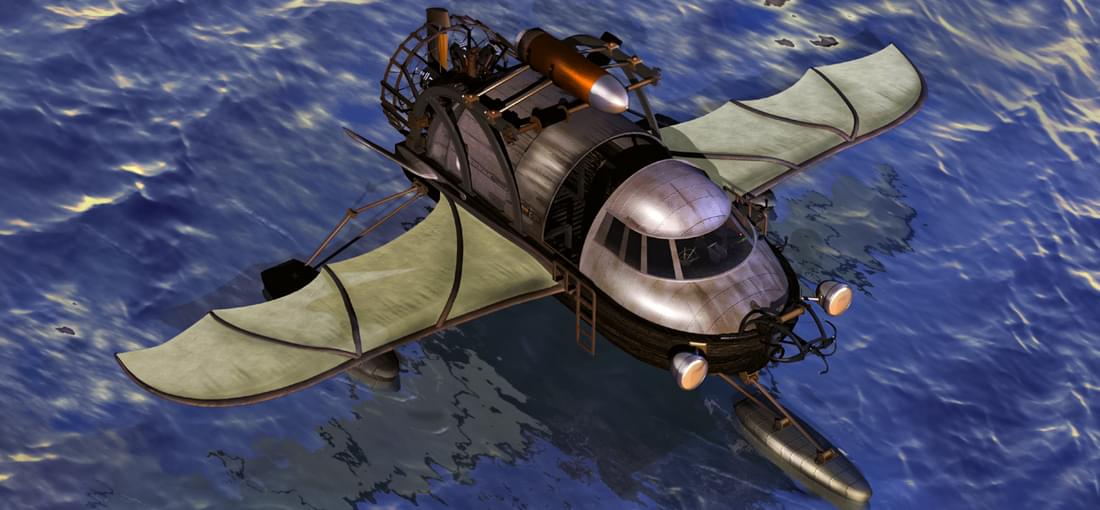
Graphics aren't usually a win/break issue for me... except when the game happens to also involve pixil hunting; and oh boy, there is a ton of it! Don't get me wrong, the art is good. It's just difficult to see some of the items you need to fetch because it's blurry from being upscaled, and some the items often blend in with the background clutter or darkness! Puzzle clues are vague and imprecise, or sometimes even inaccessible. For the former issue, you won't actually be solving these puzzles, instead you will be engaging in trial and error based on the soft clues you're given, so you'll feel like your'e forcing it, rather than solving it - assuming it's one of the puzzles that doesn't require you to engage in a leap of logic. For the latter issue, you do receive a book to help guide you, but the handwriting is in sloppy cursive and is very difficult to read. There is a lot of content in it to filter through, and you cannot reopen to your last read page, or jump to a page. You have to flip through it from the beginning every time. Although usually it's fine, the game isn't perfect at informing what you can interact it, and how to interact with it, in order to progress the game. I actually got stuck on the computer in part 1 because even though I put in the right password, I didn't know I was supposed to click this one other button. How was I supposed to know? I couldn't have. I had absolutely no way of knowing. I never would have solved this game without UHS due to all these QoL problems. Don't feel ashamed if you have to use it too.
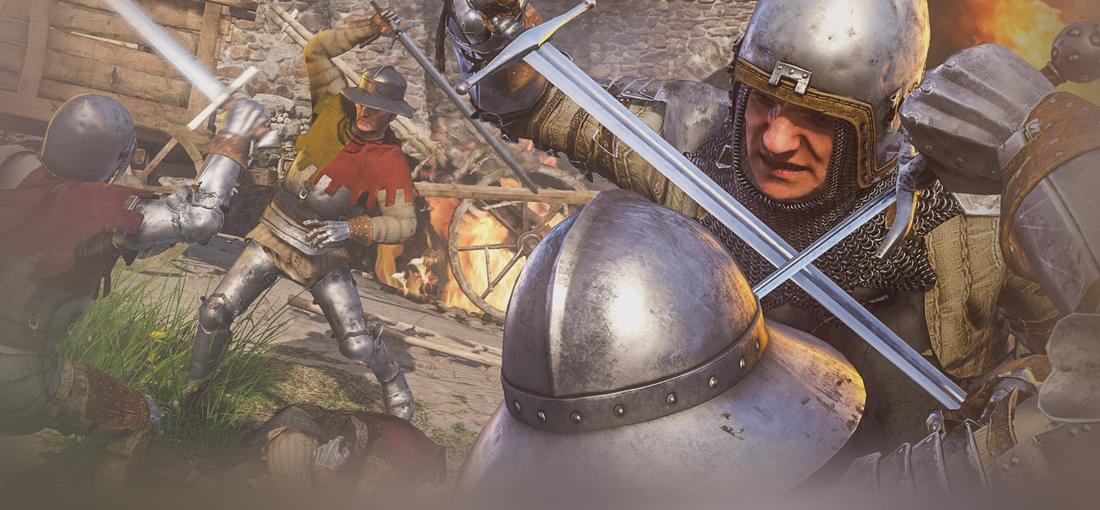
I thought researched this game before buying it. People talk about how KCD was buggy on release but most of the bugs are fixed. They talk about how combat is dangerous and realistic. They talk about it for it's historical accuacy. They talk about how it's well made for an indie project. What people don't talk about is the bullshit that actually does matter. little QoL features and gameplay. Some little things they do get right, like having to hold the action button to steal an object. That is a fantastic QoL feature that protects the player from unintended mistakes. But then they fuck it all up with everything else. The shops are marked on your map, but the vendors - who walk around - are not. So you can be at the right place, and be able to do what you're trying to do. And you can't rent a room at an inn at night. This game is also CLUNKY AF! The controls are not particularly responsive. You're more likely to break your swrod than fix it. You have no time to react to threats. The difficulty is artificial because your character is a slow and sluggish nitwit. They expect you to use logic but make things illogical. Why would anyone follow the sounds of a barking dog TO FIND A SHOVEL? You could be walking around for 3 hours, looking for a shovel, not realizing you're supposed to follow AMBIENT noise - just use a fucking quest marker! The worst offender of all is the dumbest save system I've ever had the displeasure of having to deal with. You can only make a manual save if you have Saviour Schnapps in your inventory. If you don't have any, you can't save. When you reload your save, you're drunk. The only alternative is to load an auto save from two hours ago. I understand this game is supposed to have realism and make you think, BUT IT'S STILL A FUCKING GAME! Holy fucking hell this is the most incompetent and inconvenient save system ever. Let the game be a goddamn game!
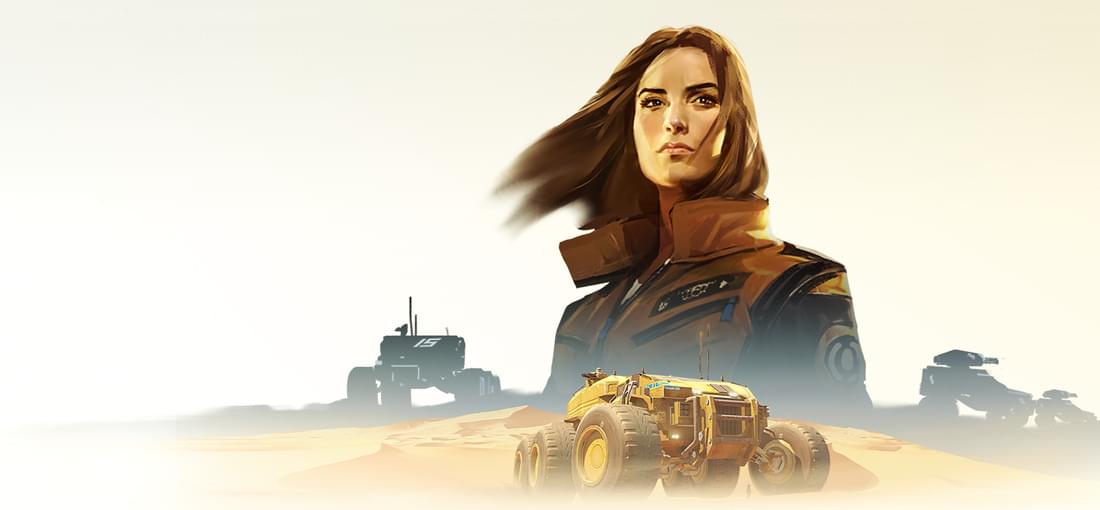
It is a Homeworld game. The music is there, the graphics and immense scale is there. But you already know the outcome of the story before you even start. And as far as gameplay goes, DoK is full of unoptimized good ideas. Tactics are meant to be a rock-paper-scissor game between unit types, with a dash of "king of the hill." But in practice, LAV's (paper) are pretty much a waste of money, and acquiring elevation is a chore because you cannot align them to optimze elevation and position with a single command. Unit formations are automatically based on the direction your units move from point A to point B, so if your angle is off, half of your units won't be using elevation correctly. Empire Earth, a shoddy Age of Empires copycat from 2001, did this better. When I think "Homeworld," I think of a slower paced RTS, so I have time to think about my tactics. All of that is flipped on its head in DoK. Despite the immense scale of the world and your units, skirmish maps are incredibly small, and production is fast. So the game is always on a frantic pace where you're trying to juggle terrain tactics and maintain a steady production. In both the story mode and skirmish, until you build a large enough force you can comfortably attack with, you will find yourself forced into frantically defending your position with no room to breathe. As with every other modern RTS, DoK is not friendly to classic casual turtle players, like myself. It wants you to play in a certain way, and you won't have a good time if you don't. There is also a lack of staple hotkeys, and what few are there can't be remapped. Verdict: This is a game for Homeworld enthusiasts and completionists. There is no real replay value in skirmish mode. And although there are lots of good ideas, the game is missing too many QoL functions to be good.
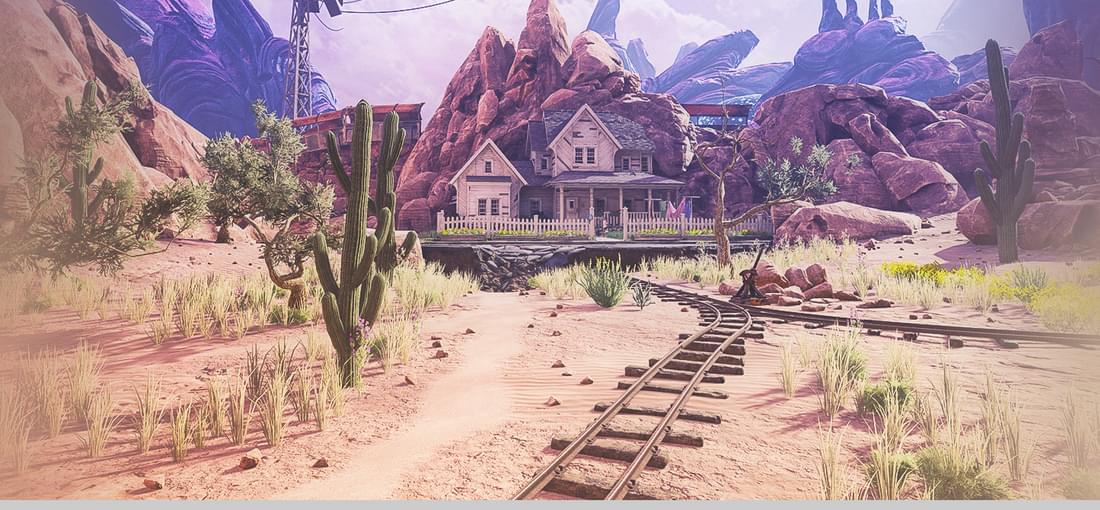
Myst and Riven was like lightning striking the same place twice, and Cyan has been trying to get a third, and I think they tried too hard with Obduction. It's not bad, but not great. It's enjoyable but has unignorable flaws. Like Myst and Riven, Obduction is essentially a giant maze. Most of Myst was generally small and compact, making it easy to navigate. Riven was larger, but it wasn't a drag. Obduction just has a ton of unnecessary extra paths. You will find yourself backtracking frequently, and toggling on "Run" mode barely makes a dent in your traveling time. This game NEEDS fast travel. Most of Obduction's puzzles are geometric/geographic in nature. There are a few code puzzles, but they're relatively weak. The alien numerical system was severly underutiliized. Most of Obduction's puzzles are easier compared to Myst and Riven. The only causes for getting stuck are usually: not knowing if something can be interacted with, not knowing where the location of a button/switch might be, or you've been caught by a red herring. And one puzzle I have no clue how it was solved; the door magically vanished. The premise of the story in Obduction is neat, and like Myst and Riven, much of the story is shared across notes and visuals. Unfortunately some story bits are easy to miss in Obduction and could even be mistaken for clutter. This ended up being vital as I got the bad end on my first play through, and had not found any information in-game to notify me otherwise. Myst and Riven did it right, as all of their most important story bits were impossible to miss with the cutscenes. Obduction startts strong and will scratch your Myst itch for a short while, but by the time you'll get to the end, you'll be wondering how this is the same studio that made Myst and Riven. You can see the inspiration, but the magic gets ruined when the flaws become nucances,and you'll be glad when it's over. Verdict: Buy only when on sale if you liked Myst.